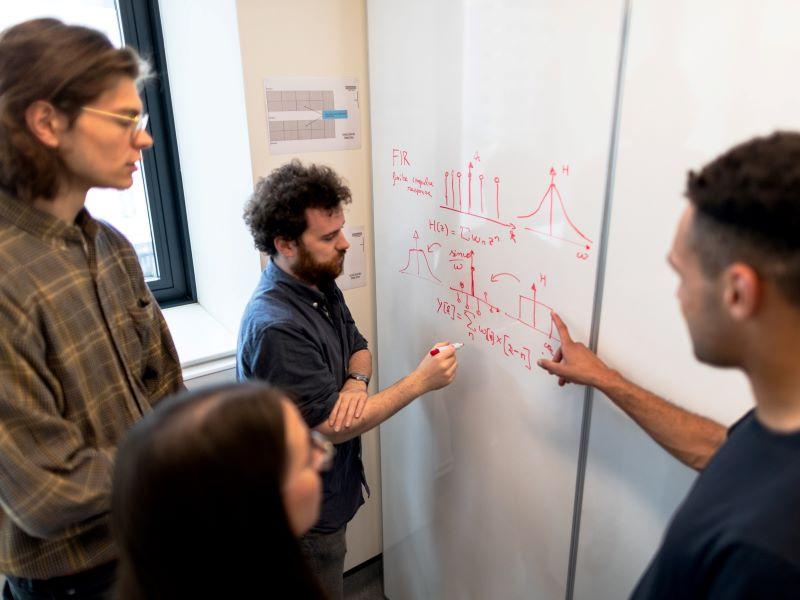
Peer feedback: a burden for students or route to better academic writing?
You may also like
What to do when students either dislike writing or feel it isn’t relevant for their future careers? What if they have low confidence in their ability to write well and little motivation to improve?
These were issues for an Engineering Foundation Year (EFY), as well as a historic problem around engagement. Some academic skills sessions had low – and in some cases zero – attendance. Students often seemed interested only in their summative grades rather than using formative feedback to improve their work.
As an academic skills officer, I worked with colleagues on a research project to test the efficacy of peer feedback in addressing these and related issues across several courses, including the EFY run at our Southampton campus. We ran the study during the 2022-23 and 2023-24 academic years.
- Spotlight collection: back to the basics of pedagogy
- Resources on how to encourage student self reflection
- How to manage assessment feedback in large classes? Get students involved
Peer feedback (or “peer review” as it is also known) is a well-researched method of teaching academic writing. As well as supporting students in the development of discipline-specific writing skills, it can also increase their feelings of agency and assist in their development as independent learners. However, as a teaching method, it is not widely used in the UK higher education sector.
The results of the project were positive, and here are our tips and workarounds to help anyone else thinking of using peer feedback in their own practice.
Use technology to anonymise feedback
Traditionally, peer feedback happens in person. However, the lead on the academic skills module in the EFY, Josh Robertson, and I were worried some students would find this too stressful. Instead, Josh suggested running the process via our virtual learning environment (VLE), Blackboard, using its PeerMark function. Students produced a piece of writing (the task) and uploaded it via Turnitin. PeerMark randomly assigned the task to another student for feedback. Guided by tutor-provided criteria (the rubric), students wrote and uploaded their feedback, ready for the original author to access later in the day. The rubrics changed from session to session, allowing for a variety of topics to be covered during the semester. Students did not know whose work they were looking at or who their reviewer was. Staff, however, did. At the end of the project, students remarked on how much they appreciated the anonymity. They particularly liked being able to try out new ideas and approaches without worrying what others thought of them.
Focus on quality from the start
Providing high-quality feedback is a skill in itself, so we knew students would need support while they learned how to do it. For the first three sessions, we checked their feedback before it was uploaded to the VLE. Although this is fairly labour-intensive, it only needs to be done a few times before students can be left safely to their own devices. We decided to view this initial input as an investment; once students know how to produce good feedback, they can tap into the skill at any point in the future. Students will also transfer their feedback skills into other contexts; ours reported using their new knowledge to feed back to peers on a group project and within an informal study group.
Incentivise participation
Student buy-in is essential for the peer feedback project to work, so we attached marks to the process. Students had to both upload a task and provide a review in order to gain the points. We also based the tasks on a piece of work that would eventually be submitted for assessment. This allowed the students to create and refine their assignments over the course of the semester, incorporating the feedback they received along the way.
Let students’ values outsmart AI
Apart from an expectation that the writing would be their own work, nothing was in place to stop the students from using generative AI. However, when we surveyed them, they were clear that they highly valued the reciprocity of the feedback process. In particular, they appreciated it when everyone took the time and effort to prepare their tasks properly and construct full and helpful feedback. We strongly suspect the use of peer feedback may therefore have mitigated against the use of GenAI tools such as ChatGPT. In any event, we hope it gave them confidence in their abilities as writers and thus removed some of the temptation to use AI in the future.
How students felt about peer feedback
Overall, the students were enthusiastic about peer feedback. Of those surveyed, 69 per cent felt that it contributed to their receiving a better grade in their assessment, 51 per cent said they would have been happy to undertake the feedback process even if there had been no marks attached, and an overwhelming 87 per cent said that they would like to use it again in future, according to results for the 2023-24 academic year. We also improved attendance, averaging 79 per cent attendance across all the sessions. Further, students told us that they now felt confident editing and reviewing their own work.
Peer feedback has its challenges, but this project was generally a success and we look forward to it becoming a fixed feature of the Engineering Foundation Year in the future.
Alison Daniell is an academic skills officer in the enhancement team at the University of Southampton.
If you would like advice and insight from academics and university staff delivered direct to your inbox each week, sign up for the Campus newsletter.




